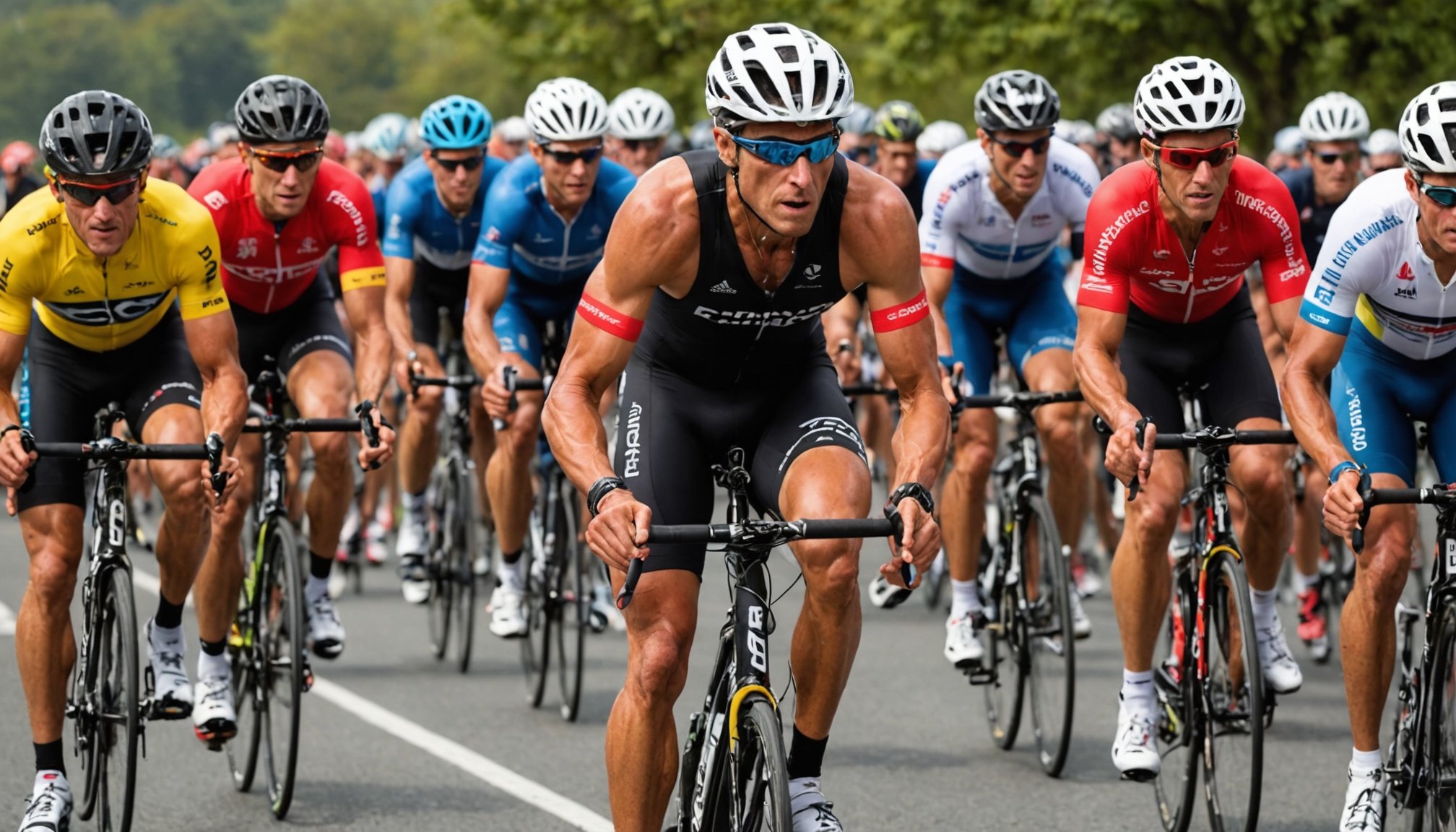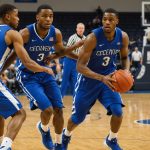Understanding the Role of Nutrition in Triathlon Performance
Nutrition plays a crucial role in triathlon performance, significantly impacting an athlete’s endurance and overall results. The appropriate nutrition importance in triathlons cannot be overstated, as it fuels the body’s energy systems crucial for sustained exertion. Triathletes engage three primary energy systems: the phosphagen system uses creatine phosphate for short bursts, the glycolytic system breaks down carbohydrates for mid-length efforts, and the oxidative system uses fats for prolonged activity.
Individualized nutrition strategies are necessary because every triathlete’s metabolic rate and energy requirements differ. This personalization ensures that athletes maintain optimal performance by adapting their diet to their body’s metabolic changes during different training phases. Carbohydrates are vital, as they provide a quick and accessible energy form, while fats serve as an essential fuel source for longer distances. Proteins support muscle recovery and maintenance, helping repair tissues after intense workouts.
Additional reading : Essential injury prevention techniques for professional lacrosse players: mastering hamstring health
Balancing these macronutrients, understanding their role, and implementing them strategically boost an athlete’s efficiency. Consistent attention to nutrition ensures that triathletes can perform at their best while minimizing the risk of fatigue or injury, contingent on their race schedule and personal physiology.
Macronutrient Ratios for Triathletes
Achieving an optimal macronutrient balance is essential for athletes aiming to enhance their performance in triathlons. Carbohydrates, proteins, and fats each play critical roles, and their proportions can significantly influence an athlete’s success.
Also read : Top dietary supplements to enhance strength and endurance for rugby players
Carbohydrates: The Primary Fuel Source
Carbohydrates are vital for providing quick energy. They are converted into glycogen, stored in muscles and liver, supplying energy during exertion. To sustain energy, triathletes should focus on consuming complex carbohydrates, such as whole grains, a few hours before an event.
Proteins: Supporting Recovery and Muscle Maintenance
Proteins are essential for muscle recovery and maintenance, aiding in the repair of muscle tissues post-exercise. They should be incorporated in meals after training sessions to facilitate muscle repair. Lean meats, legumes, and dairy are excellent sources.
Fats: For Endurance and Long-Distance Energy
Fats offer a sustained energy source. They are particularly beneficial during long-distance events where endurance is crucial. Including healthy fats, like avocados and nuts, in the diet helps ensure adequate energy reserves.
For optimal performance, a triathlete’s diet should be adaptable, aligning macronutrient intake with training and race demands.
Hydration Strategies for Competitive Triathlons
Hydration techniques for endurance athletes are crucial to maintaining peak performance and avoiding dehydration-related complications. Proper hydration before, during, and after events is imperative to ensure fluid balance and optimize endurance.
Pre-Event Hydration
Begin hydrating in the days leading up to a race, focusing on gradual fluid intake rather than overloading. This approach helps your body acclimate and ensures you’re well-prepared. The general rule is to consume about 500ml of water 30 minutes before starting.
During the Race
Electrolyte replacement becomes vital as athletes inevitably lose fluids. A combination of water and electrolyte-rich drinks during the race can prevent cramps and maintain optimal performance.
- Sip fluids regularly
- Combine water with electrolyte tablets or sports drinks
Post-Race Rehydration
After a race, rehydration is essential to recover lost fluids and kickstart the recovery process. Aiming for about 1.5 litres of fluid per kilogram lost is a reliable gauge.
Common hydration strategies by elite triathletes often include personalizing fluid intake according to sweat rates and weather conditions, ensuring efficiency and effectiveness in every event. Tailoring these strategies helps athletes manage their hydration intelligently, enhancing overall performance.
Meal Planning and Preparation for Race Day
Proper race day nutrition strategies are critical for a triathlete’s success, as they help maintain energy levels and enhance performance.
Pre-Race Meals: Fueling the Night Before
Eating a carbohydrate-rich dinner the night before is vital. This meal should include complex carbohydrates like pasta or brown rice to store glycogen in your muscles. Protein and low-fat options ensure digestive comfort.
Breakfast on Race Day: Key Considerations
On race day, the breakfast should be consumed 2-3 hours before the start. This meal should balance carbohydrates, like oatmeal or toast, with a moderate protein source, ensuring energy is gradually released.
Snacks and Supplements During the Event
During the race, focus on easily digestible snacks or supplements like energy gels or sports drinks. These provide quick carbohydrates to sustain energy without causing gastric distress. It’s crucial to pre-test these snacks in training to ensure they suit your body.
Tailor your meals to align with race timing, setting you up for optimal performance. Prepping meals in advance reduces stress and ensures you have access to suitable, nutritious food on race day. Thoughtful meal prep can significantly impact your endurance and success.
Timing Nutrition Around Training
Proper nutrition timing is pivotal for triathletes, ensuring peak performance and efficient recovery. By carefully aligning meal intake with training schedules, athletes can optimize energy utilization and muscle recovery.
Importance of Nutrient Timing for Recovery
The timing of nutrient intake significantly influences recovery. Consuming carbohydrates and proteins shortly after training replenishes glycogen stores and supports muscle repair. This practice minimizes recovery time and improves performance consistency for subsequent workouts.
Recommended Pre- and Post-Training Snacks
Pre-training snacks should focus on easily digestible carbohydrates and a small amount of protein, such as a banana with nut butter. This boosts energy without causing discomfort. Post-training, a combination of proteins (e.g., Greek yogurt) and carbohydrates (e.g., whole-grain toast) is ideal to kickstart muscle recovery and glycogen restoration.
Impact of Timing on Performance Outcomes
Strategic nutrition timing can enhance performance outcomes by ensuring energy availability during training and competitions. Studies highlight better endurance and recovery rates in athletes who manage nutrient timing effectively. Prioritizing nutrition timing equips triathletes with sustained energy and faster recovery, ultimately contributing to superior performance. Aligning meals with individual schedules and training demands prevents fatigue and enhances overall athletic success.
Common Nutrition Mistakes to Avoid
Adopting an effective nutrition plan is key, yet nutrition pitfalls for triathletes are common hurdles. Triathletes often rely heavily on supplements, believing they compensate for dietary gaps. While supplements can enhance intake, they shouldn’t replace whole foods. Instead, prioritize a balanced diet rich in natural nutrients.
Ignoring individual needs is another frequent mistake. Every athlete’s body reacts uniquely to certain foods and nutrition strategies. Tailored plans addressing personal nutrition pitfalls are essential for optimal results. Consulting a sports nutritionist can customize strategies, considering factors like metabolic rate and personal preferences.
Poor recovery practices hinder progress, as recovery is crucial in a triathlete’s regime. Inadequate nourishment post-exercise can lead to muscle fatigue and decreased performance. Address this by integrating sufficient proteins and carbohydrates in post-training meals, ensuring a faster recovery and better readiness for subsequent workouts.
By avoiding these nutrition pitfalls and correcting errors observed in peer-reviewed case studies, triathletes can enhance their performance. Adapting proven strategies like personalized dietary adaptations has shown significant improvements in endurance and overall success. Awareness and action towards these common mistakes can lead to a more effective and enriching training and competitive experience.
Sample Nutrition Plans and Recipes
Balanced meal planning is pivotal for triathletes to optimize performance. Tailored nutrition plans accommodate different training intensities and race requirements. Below are examples and triathlon meal ideas and recipes to inspire dietary adjustments for various needs.
Example Daily Meal Plans
Training Day
- Breakfast: An oatmeal bowl with fruits and nuts, providing complex carbohydrates and essential fats.
- Lunch: Grilled chicken salad with quinoa, rich in proteins and balanced with complex carbohydrates.
- Dinner: Salmon with sweet potatoes and greens, ensuring adequate omega-3s and a source of vitamins.
Rest Day
- Breakfast: Greek yogurt with mixed berries, ideal for maintaining proteins with a lower carbohydrate focus.
- Lunch: Lentil soup with whole-grain bread for fiber and healthy carbohydrates.
- Dinner: Vegetable stir-fry with tofu, providing plant-based protein and vitamins.
Easy Recipes
- Pre-Race: Energy bars made from dates, oats, and nuts. Convenient and nutrient-dense fuel.
- Post-Race: Smoothie combining spinach, banana, protein powder, and almond milk for recovery.
Nutrient-Dense Snacks
- For Long Training Sessions: Homemade trail mix with dried fruits and seeds, offering a mix of natural sugars and healthy fats.











